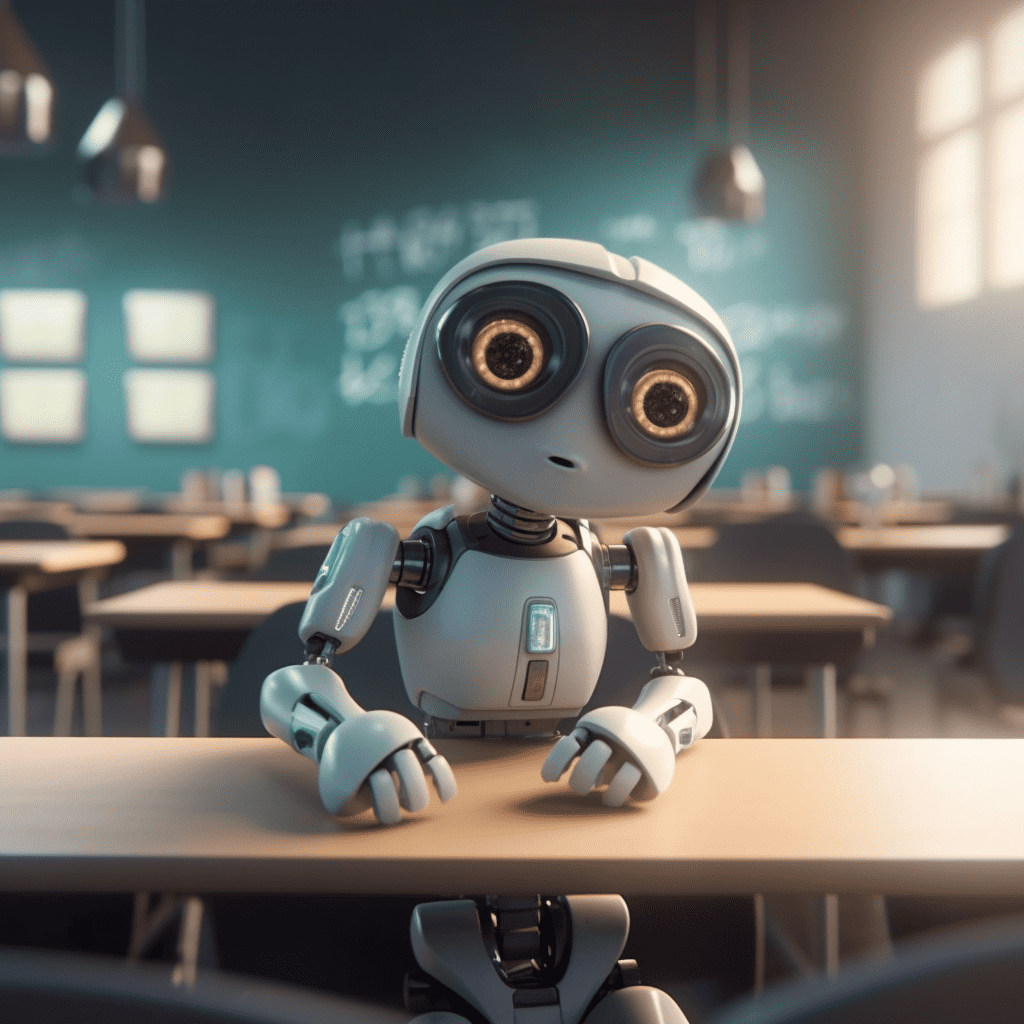As the college bell rings for a new academic 12 months, schooling leaders across the nation are dealing with a various variety of homework – addressing the challenge and ethics of AI utilization in classrooms.
Previously dismissed as but one more shortcut to plagiarize perform, AI platforms like ChatGPT are now swiftly becoming accepted and integrated as crucial elements of daily understanding resources.
Not a extended time in the past, artificial intelligence in colleges was viewed dubiously by schooling heads across the nation.
Considerations notably escalated with the introduction of ChatGPT in November, which demonstrated creating abilities probably equal to, if not higher than, individuals of college students themselves.
Faced with the probably destabilizing result of these tech resources becoming readily offered to college students, college districts created efforts in the prior academic 12 months to set up virtual boundaries separating them from AI.
AI in classrooms was at first witnessed as fostering a ‘shortcut culture’ rather than genuine educational advancement. Educational institutions wrestled with the situation of how these algorithms could market plagiarism or allow college students to slack.
Whilst these platforms have been at first met with precaution from educators, colleges are now turning into a lot more pragmatic in the new academic 12 months.
Rather than banning these resources outright, institutions have commenced to investigate approaches they can be utilized as valuable understanding aids. This mindset modify displays developing recognition of generative AI’s prospective positive aspects, if utilized appropriately, for educational functions.
For instance, numerous higher college teachers have assigned college students projects involving ChatGPT. 1 this kind of undertaking entails asking the chatbot to compose poetry in a certain design, soon after which college students analyze the produced articles, shared Janella T. Hinds, Vice President for Academic Substantial Colleges at the United Federation of Teachers.
One more illustration is Los Angeles Unified, the country’s 2nd-biggest district, establishing a school-specific chatbot called “Ed”. Regardless of at first banning ChatGPT on district units, they acknowledged the positive aspects of this kind of technologies and have because deployed their chatbot across a hundred colleges.
Available by way of smartphones, “Ed” provides a selection of functions made to inspire academic development and organizational capabilities.
This bot not only reminds college students to comprehensive assignments, but also assists dad and mom in accessing their children’s grades and attendance information.
Inside of 6 months, “Ed” will be expanded to all district colleges. Superintendent Alberto Carvalho praised the application at a college 12 months kickoff occasion as “that voice that speaks to you early in the morning, late in the evening, wakes you up, nudges you, reminds you of your attendance, your homework,”.
In New York City, Schools Chancellor David Banks articulated the district’s determination to embrace generative AI in spite of obtaining banned it earlier.
Soon after heated debates and consultations with educators across the city, who had presently begun incorporating AI into their classrooms, Banks’ position on AI evolved significantly. College students debating ethical troubles surrounding AI prejudice, reinforced his belief in selling informed discussions about this novel technologies.
Underneath Bank’s leadership, New York City colleges not only lifted some restrictions on ChatGPT, but started actively embracing its choices for transforming schooling techniques – from customized lesson programs to sensible administrative resources – whilst making sure a balanced comprehending of each its energy and related dangers.
Regardless of embracing this new identified device, colleges do not neglect worries about feasible misuse.
Trying to keep a verify on these new guidelines is fairly difficult, primarily due to the fact there is not any fail-protected way but to inform for certain if articles was developed by a individual or whipped up by a machine.
Organizations claiming they can detect AI-written pieces obtain skepticism from numerous schooling specialists who argue this kind of guarantees frequently show unrealistic. Even the most sophisticated resources can not often accurately decide what is human-written.
“There are some businesses correct now that claim that they can detect AI,” mentioned schooling researcher H. Alix Gallagher from Stanford University for the duration of an interview. “I would suggest suspicion about the guarantees of catching cheating. And something that says we can protect the standing quo is, I feel, untrue.”
This total back-and-forth we have witnessed with AI in colleges has created 1 factor crystal clear: as potential tech keeps seeping into all corners of our globe, which includes classrooms, it truly is for certain gonna shake up how we feel about educating.
But this isn’t going to indicate teachers get to disregard the difficult bits that come along with employing this variety of cutting-edge technologies – we have to figure out how to use these new resources without having letting items go off the rails.
Reality is, no person can predict precisely what is all around the corner with AI and how it will disrupt education.
A whole lot of teachers however are beginning to see generative AI significantly less like a scary game-changer and a lot more like a secret weapon: keep in mind when calculators initial commenced popping up in math lessons?
These new resources could get more than some of individuals uninteresting bits so children have a lot more time to wrap their heads all around larger concepts.



